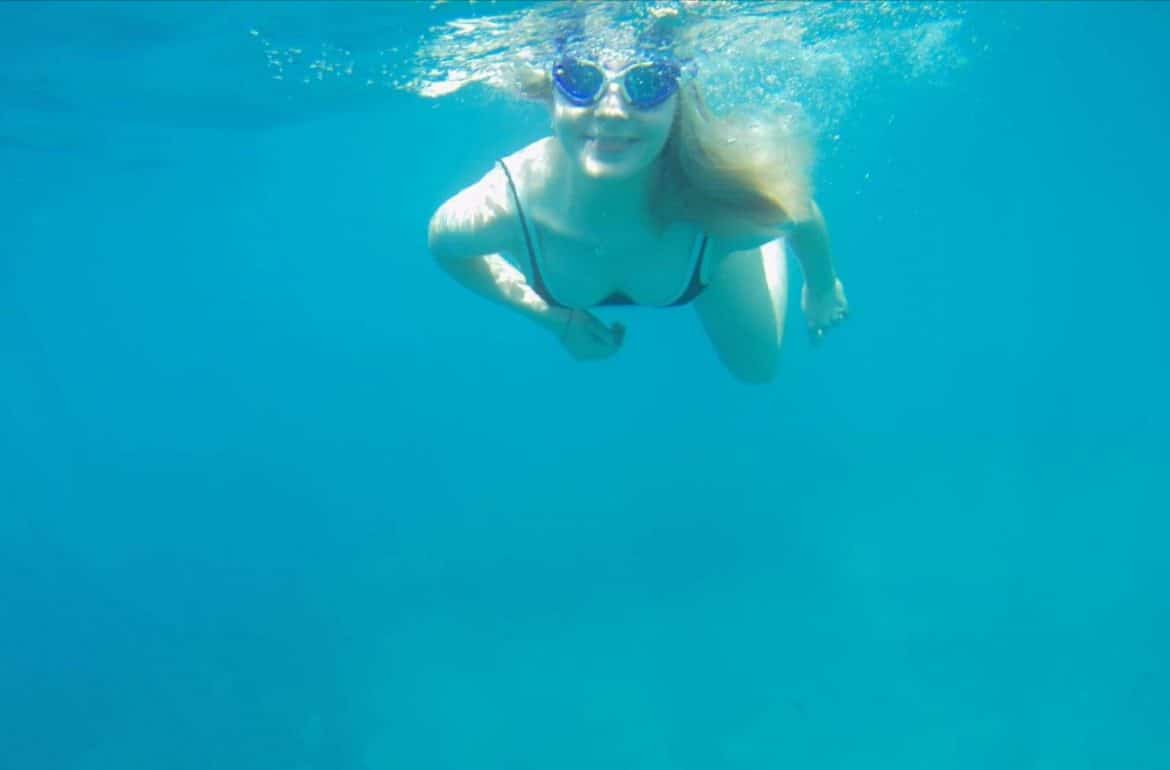‘It’s great for the body and the mind’ has become a swimming platitude. How much truth is there in it?
As swimming becomes more and more popular, swimmers, in their enthusiasm for it, may be missing the real benefits of being in water. One of these is the support it offers sufferers of anxiety.
Anxiety doesn’t exist in someone’s head alone, Alexander taught, and neither does calmness. These mental conditions are part of a total pattern of use of ourselves.
If someone with depression is very pulled down physically, this is going to be part of their story. If someone is all over the place in their thinking, there’ll be a physical counterpart. Mental and physical processes can’t be separated.
If we’re anxious when we begin the non-doing work of the Alexander Technique, a subtle but deep transformation starts with our decision to think ‘neck to be free, head to go forward and up, back to lengthen and widen’. Breathing deepens, we become physically lighter and find ourselves calmer and energised. It is a real and profound change.
Pushing your body through exercise, while it might make you feel better in the short term, with endorphins released etc, doesn’t make real, fundamental change but ‘promotes what is already there, and if what’s already there is bad, it is folly to accentuate it.’ (Patrick MacDonald).
Swimming may actually be worse than other forms of exercise if we overdo or rush the breathing and excite our fear reflexes in the act. Easily excited fear reflexes are likely to be a large part of an anxious person’s problem.
The good news for people who suffer from any kind of anxiety is that being in the water can transform us, without a lot of work, mental or physical. Very gentle movement, or complete stillness, with our head releasing into the water, provides the most benefit. The less ‘swimming’ we do the better.
It’s quiet under there. You come to quiet. Your head, neck and back quickly and easily become integrated, better connected, as you melt into the support of the water. Air flows out, unforced.
Being underwater changes your state. Try taking a worry underwater with you. It sort of floats alongside you and can’t get in. It’s almost impossible to think intellectually, to ruminate.
Execution of swimming strokes, on the other hand, takes you immediately back into the realm of having something to worry about, to control, to get right, to do.
In my experience there’s nothing better than getting into water if you’re suffering from anxiety. The benefits are easy to access with very little swimming skill, so long as you trust the water to support you and you’re able to float face down. Bobbing up and down vertically is also very useful.
When we become too interested in swimming, which is so fashionable at the moment, we muddy the still waters. But float without fear and your fears float away.


